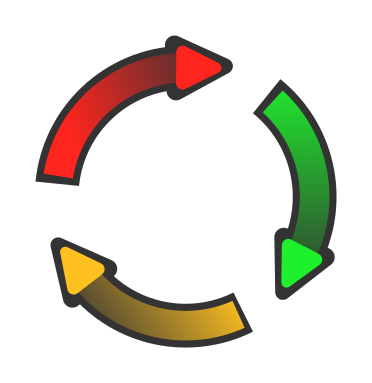Notes
- Schedule can be tailored to suit team availability
- If multiple teams are on the course, each session includes a mix of all together for the theory, and separate teams for exercises
- Module 6 scheduled separately with each team

Build better quality software, faster.
We know from decades of experience that Test-Driven Development (TDD) will help you developer better quality code, faster.
If your teams are suffering from any of these problems, TDD will help:
Test-Driven Development (TDD) is an incremental and iterative approach to developing software that follows a simple 3-step cycle:
This simple practice has a huge impact on the kinds of issues listed above. The means by which this happen are numerous, but include:
This course takes an experiential training approach - there is a limited amount of slides/theory, most of the time is either spent watching live demos or doing active practical work in teams.
Running tests, TDD cycle intro, pairing & ensembling, assertion styles
Implicit Dependencies, Explicit Dependencies (Mocking)
Behaviour Driven Tests
Layering & Temporary Tests
Refactoring & Code Smells
Domain-Driven Tests
State Management, Test Object Factories
TDD with Untested Code, Snapshot & Approval Tests
Working together on the team’s real code
6 weeks
1 x 3hr session per week
12 weeks
1 x 1.5hr session per week
3 days
2 x 3hr sessions per day